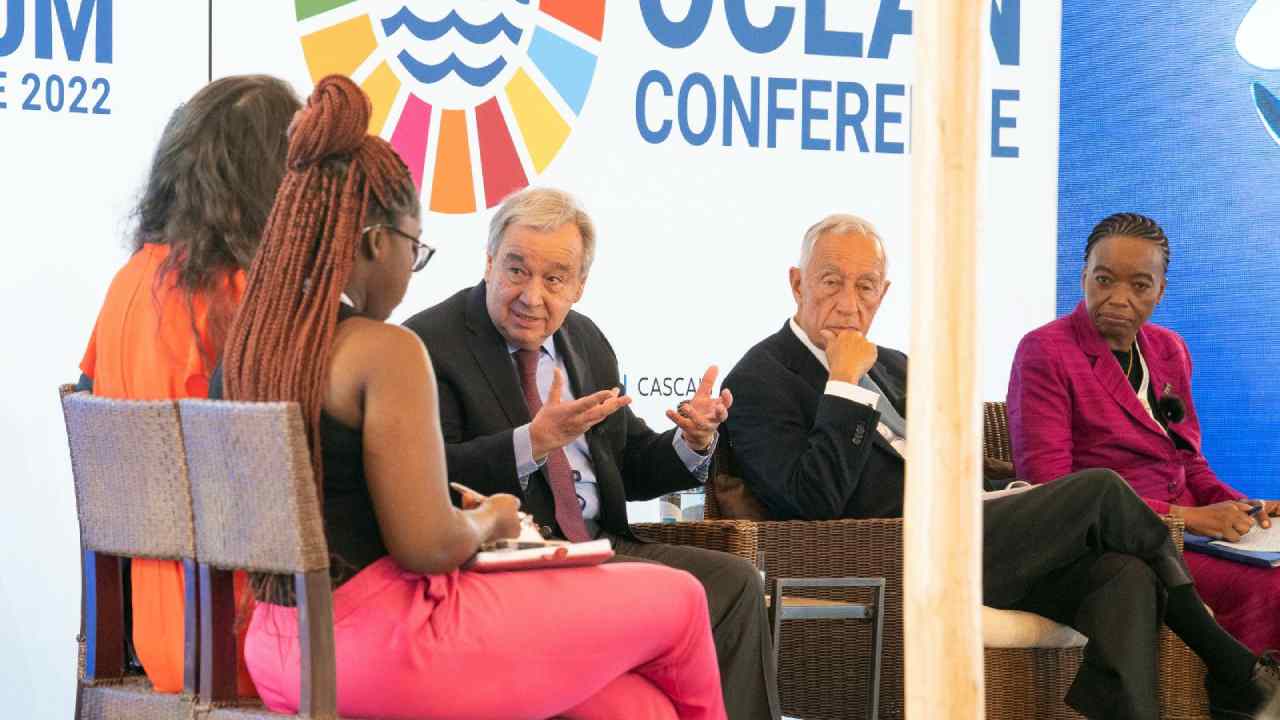António Guterres participates in the Ocean Conference in Lisbon, where he lamented that young people will inherit a planet in trouble due to the lack of action of their generation. “We will have to reverse everything: political decisions, economic decisions and individual behaviour,” he said.
The UN Secretary General, António Guterres, apologized on behalf of his generation to the young generation for the “state of the oceans, biodiversity and climate change” that they will inherit.
“My generation, and those who were politically responsible – which is my case – we were slow or sometimes unwilling to recognize that things were getting worse and worse in these three dimensions: oceans, climate, and biodiversity,” Guterres told the lively crowd.
Adding that globally, the world is still moving too slow and must act now to start rehabilitating the oceans, rescuing biodiversity, and halting climate change, the UN chief stressed that “it is a generational responsibility that goes far beyond political leaders”.
Economic leaders, he added, “have typically put profit before sustainability, caring only about shareholder values.” The most obvious cause, he argued, is that of the fossil fuel industry, which “for decades has been spending millions and millions on false scientific studies, on public relations, trying to give the impression that fossil fuels were not so polluting and that climate change was not exactly what was said.
“It reminds me of the tobacco industry that did exactly the same thing, saying that tobacco was totally harmless, that there would be no health problem. It is time to seriously condemn these behaviors,” he said.
Guterres said, we are in a situation where we are experiencing a triple crisis: climate crisis, the biodiversity crisis, and pollution crisis.
The ocean “is the receiving point for all these crises,” he said. “The oceans are warmer. We see how corals are destroyed. We see storms becoming more and more devastating everywhere. Overfishing is having a dramatic impact on biodiversity,” he added.
According to figures from the UN, about 680 million people live in low-lying coastal areas, a figure that will increase to about a billion in 2050. In addition, the latest analysis estimate that industrial activities based on the use of the oceans will employ 40 million people by the end of this decade.





























